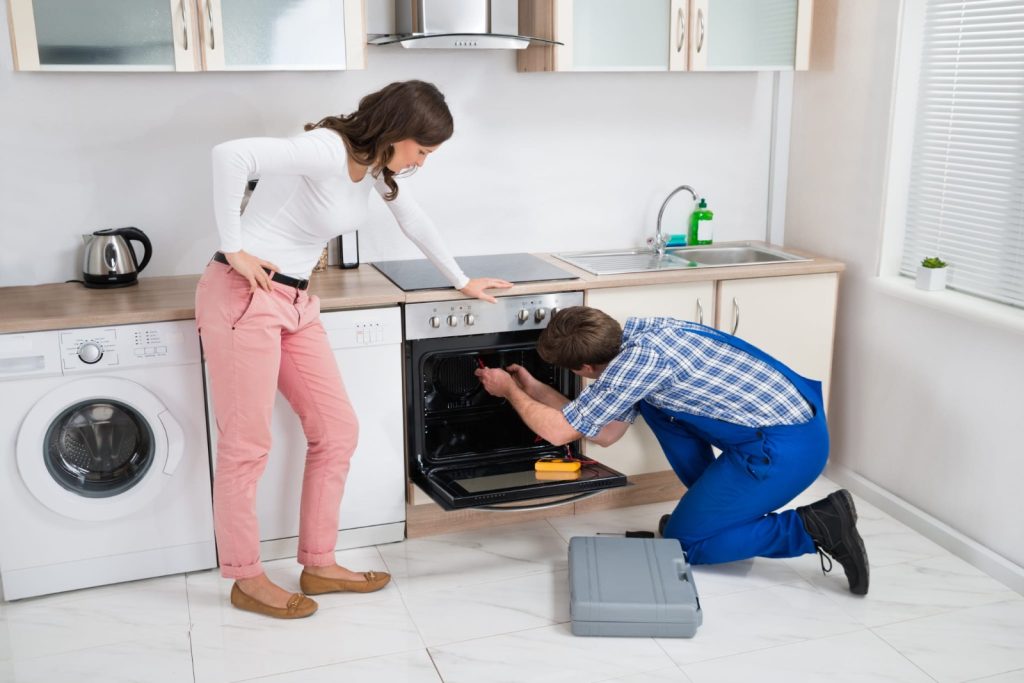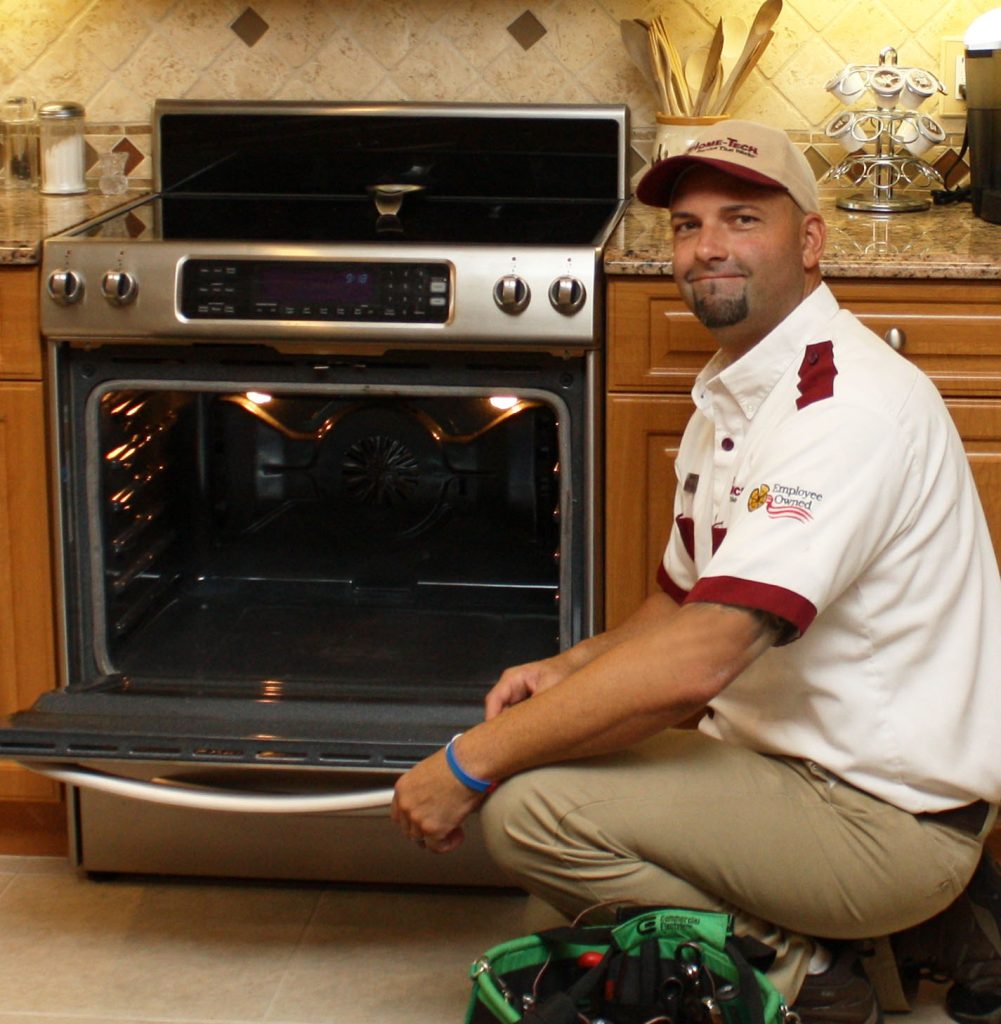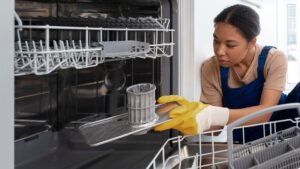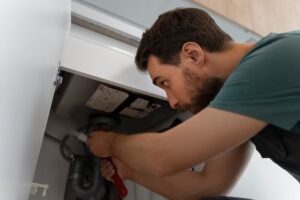As a homeowner, one of the most frustrating and unexpected situations you may encounter is when your appliances break down. You need to decide among Repairing vs Replacing an appliance.
Suddenly, your well-functioning kitchen or laundry room comes to a screeching halt, leaving you with the daunting decision of repairing or replacing the faulty appliance. Making an informed choice in the repairing vs replacing debate is vital for your budget and the environment.

Pros of Repairing Appliances
Repairing appliances can be a cost-effective way to deal with malfunctions and breakdowns. When you repair an appliance, you avoid the substantial upfront costs of buying a brand-new one.
This decision about Repairing vs Replacing can be particularly beneficial if you are on a tight budget or looking to save money. Repairing the appliance also helps extend its lifespan, giving you more years of service before considering a replacement.
Not only does repairing save money, but it also contributes to a more eco-friendly approach. By opting to repair your appliance instead of replacing it, you reduce the amount of electronic waste in landfills. Electronic waste, or e-waste, is a significant environmental concern, and repairing appliances can reduce its impact.
Another advantage of choosing repairs is the time factor. Finding a reliable repair service is often faster and more convenient when an appliance breaks down than appliance shopping. With today’s busy lifestyles, the quicker turnaround time for repairs can significantly relieve households dependent on the malfunctioning appliance.
Cons of Repairing Appliances
Despite the cost-effectiveness and eco-friendliness of repairs, certain drawbacks exist. One significant concern is that repairs may only provide a temporary fix. While they can solve the immediate issue, there’s a chance that other components could fail in the future, leading to more frequent breakdowns.
This repetitive cycle of repairs can become frustrating and may eventually outweigh the cost savings.
Additionally, older appliances might encounter challenges finding compatible replacement parts, especially for discontinued models. As technology advances, manufacturers may phase out support and parts for older appliances, making repairs increasingly difficult or even impossible.
The lack of available replacement parts can be crucial in deciding whether to repair or replace an aging appliance.
Moreover, outdated technology in older appliances can lead to safety risks. Older appliances might not meet current safety standards, potentially posing hazards to you and your family. Furthermore, these older models are often less energy-efficient, resulting in higher energy consumption and utility bills.

Pros of Replacing Appliances
Replacing an appliance offers benefits, making it a viable option for many homeowners. Newer appliances are designed with energy efficiency in mind. They often come with energy-saving features, which can lead to substantial cost savings on your monthly energy bills.
Over time, the reduced energy consumption can help offset the higher upfront cost of purchasing a new appliance.
Another advantage of replacing appliances is the integration of modern features and technology. Manufacturers continually improve their appliances, adding innovative features that enhance convenience and performance.
From smart home capabilities to improved water and energy usage, newer models offer numerous advantages that can make household tasks more efficient and enjoyable.
Warranties are another significant advantage of replacing appliances. Many new appliances come with manufacturer warranties that cover repairs and replacements for a specified period. A warranty provides peace of mind, protecting you from unexpected repair expenses during the warranty period.
Cons of Replacing Appliances
The most apparent downside of replacing appliances is the initial investment required. Purchasing a brand-new appliance can be a significant expense, and not everyone may have the financial flexibility to afford it.
This is particularly true when multiple appliances break down simultaneously, creating a considerable financial burden.
Additionally, the production and disposal of new appliances have environmental implications. Manufacturing new appliances requires resources and energy, contributing to carbon emissions and resource depletion.
Similarly, disposing of old appliances can be problematic, especially if they are in landfills and contribute to electronic waste.
Factors to Consider in Repairing vs Replacing
Several factors can guide your decision-making when facing the repairing vs. replacing dilemma. First, consider the age of the appliance. If the appliance is relatively new and hasn’t reached the end of its expected lifespan, repairing it may be a more logical choice.
However, if the appliance is already quite old and has a history of breakdowns, replacing it might be a more practical long-term solution.
Next, evaluate the cost of repairs compared to the cost of a new appliance. In some cases, frequent and expensive repairs may make buying a new, reliable appliance a wiser financial decision.
Consider obtaining quotes from Repairing vs Replacing services and comparing them to the cost of a new model to see which option makes the most financial sense.
Lastly, consider the frequency of breakdowns and the potential impact on your daily life. If an appliance is constantly breaking down and causing disruptions, investing in a new, reliable appliance may save you from ongoing frustrations and inconveniences.
Conclusion
The repairing vs replacing decision is significant for homeowners facing appliance issues. Understanding the pros and cons of each choice can help you make a well-informed decision that aligns with your budget and sustainability goals.
Repairing appliances can be cost-effective and eco-friendly, extending their useful life and reducing electronic waste. On the other hand, replacing appliances offers energy efficiency, modern features, and warranties that provide peace of mind.
Ultimately, considering factors such as the appliance’s age, repair costs, and frequency of breakdowns will guide you toward the most suitable option among Repairing vs Replacing for your home. Additionally, practicing proper appliance maintenance can help prolong their lifespan and enable more sustainable choices for the future.




